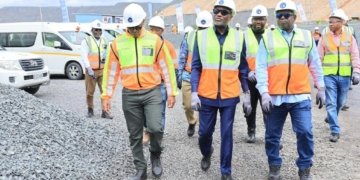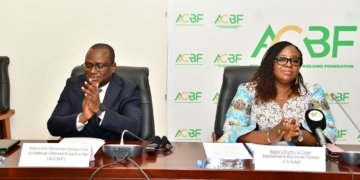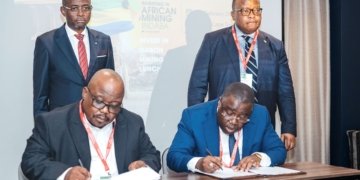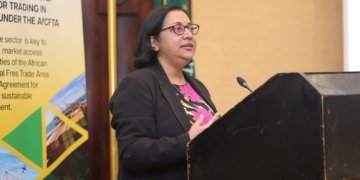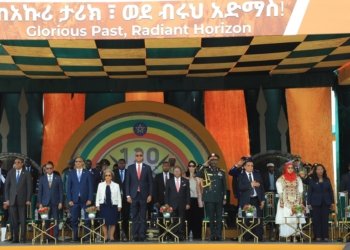KIGALI, Rwanda (BG) – Nuclear energy could play a transformative role in solving Africa’s persistent electricity challenges, said Claver Gatete, the Executive Secretary of the United Nations Economic Commission for Africa (ECA), during a meeting on Financing Africa’s Nuclear Energy Future in Kigali, Rwanda, on Monday.
“Africa remains the world’s least electrified region, with unreliable and generally expensive supply. Nearly 600 million people do not have access to electricity,” Gatete stated.
He emphasized the potential of nuclear energy to bridge this gap: “Nuclear energy can be a cornerstone for a low-carbon future.”
According to the International Energy Agency (IEA) Nuclear power is an important low-emission source of electricity, providing about 10% of global electricity generation.
Currently, 600 million people, or 43% of the total population, lack access to electricity, mostly in sub-Saharan Africa.
Countries such as Ghana, Kenya, and Rwanda are on track for full access by 2030, offering success stories other countries can follow, according to IEA.
Africa’s Role in Nuclear Energy
Highlighting the continent’s strategic position in the global nuclear energy landscape, Gatete pointed to Africa’s significant contribution to uranium production.
“Africa is a key player in uranium production, with Namibia and Niger among the top five contributors globally,” he said.
He added, “It’s crucial to bridge the energy gap and meet rising demands with clean, low-emission nuclear technology – it is possible.”
Uranium is the fuel most widely used by nuclear plants for nuclear fission.
According to the Nuclear Business Platform, Namibia, Niger, and Morocco are among Africa’s uranium-rich countries, each holding substantial reserves capable of driving the continent’s nuclear ambitions.
Namibia, for instance, is currently the third-largest producer of uranium globally, contributing about 11% of the world’s supply.
Overcoming Challenges and Advancing Commitments
Gatete also noted that Africa’s commitment to nuclear energy is growing amid a global shift toward the technology.
“The landscape is changing… 64 reactors are under construction in 15 countries. African countries are committing to nuclear energy development,” he said.
Rwanda’s Minister of Infrastructure, Jimmy Gasore, and Minister of Information and Communication Technologies and Innovation, Paula Ingabire, also participated in the discussions.
Gatete’s remarks underscored nuclear energy’s potential to transform Africa’s energy landscape, reduce dependency on fossil fuels, and support the continent’s broader development goals.

